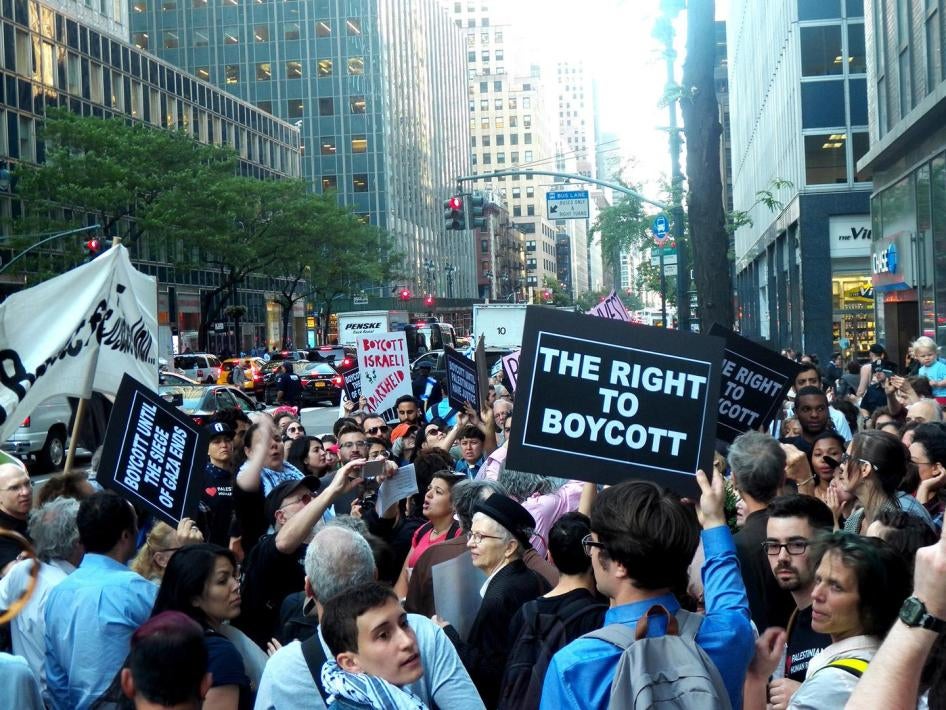Over the last four years, the Trump administration upended the global politics of the Israel-Palestine issue. On November 19, 2020, a year after declaring that West Bank settlements did not violate international law, Mike Pompeo became the first US secretary of state to officially visit a settlement. The same day he vowed to list, and cut off funding to, nongovernmental organizations that support boycotts of Israel -- support that, in the Trump administration’s view, makes them anti-Semitic.
Pompeo never issued that list, for unexplained reasons. But Joe Biden’s inauguration as president is unlikely to end governmental efforts to malign the Global Boycott, Divestment, and Sanctions (BDS) Campaign against Israel, including in ways that threaten free speech. The BDS campaign advocates a peaceful boycott of Israel until it stops occupying the West Bank and Gaza Strip, grants equal rights to Palestinian citizens, and allows Palestinian refugees to return.
Pompeo did more than tar BDS as inherently anti-Semitic; he also lumped in groups that use international law as a basis to urge businesses to cut ties with West Bank settlements, which are illegal under the Fourth Geneva Convention.
Human Rights Watch is one such group. While it takes no position for or against boycotts of Israel, it urges businesses, consistent with their human rights responsibilities, to shun settlements in order to avoid complicity in the settlements’ inevitable human rights violations.
Well before Trump took office, US state legislatures began adopting laws to bar state contracts to companies or individual contractors that support boycotts of Israel. At least twenty-five states have now done so; most would even penalize those that boycott only settlements. The US Congress has also come close to passing bills to sanction companies and nonprofit groups that boycott either Israel or just the settlements.
Candidate Joe Biden denounced BDS for “singling out” and “delegitimizing Israel,” but has not called it inherently anti-Semitic.
To campaign or boycott solely on behalf of Palestinians under Israeli rule no more constitutes anti-Semitism than doing so on behalf of Tibetans in China is in itself anti-Chinese racism.
Some of Biden’s cabinet picks have vowed to combat BDS, with Linda Thomas-Greenfield, ambassador to the U.N., declaring, disturbingly, that it “verged on anti-Semitism.” But Secretary of State Anthony Blinken, who also came out against BDS at his confirmation hearing, added in the same breath, “We fully respect and will always respect the First Amendment rights of Americans to say what they believe and think.”
Biden, too, should defend free speech rights, which include the right to call for peaceful boycotts, even if he remains anti-BDS. He should also oppose laws that penalize companies seeking to disentangle themselves from rights abuses inherent in Israeli settlements. And he should publicly repudiate Trump’s legacy of tarring criticism of Israel as anti-Semitic in spurious ways.










